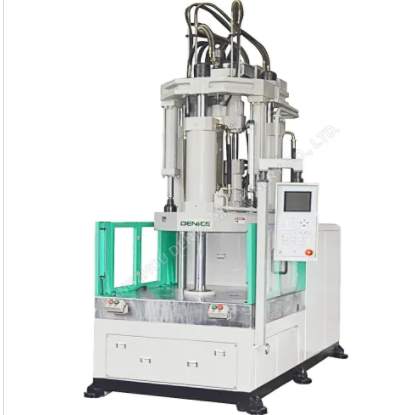How Do I Choose the Right Low-Pressure Injection Molding Machine for My Needs?
Low pressure injection molding machines have gained significant popularity in the manufacturing industry due to their versatility and cost-effectiveness. These machines are capable of producing high-quality plastic parts with precision and efficiency. However, choosing the right low-pressure injection molding machine for your specific needs can be a daunting task. In this article, we will guide you through the key factors to consider when selecting the perfect machine for your application.
Production Volume:
The first step in choosing the right low-pressure injection molding machine is to determine your production volume requirements. Consider the quantity of parts you need to produce within a given timeframe. Low-pressure machines are generally more suitable for low to medium production volumes. If you require high volumes, you may need to explore other molding technologies or consider multiple low-pressure machines to meet your demands efficiently.
Part Size and Complexity:
Evaluate the size and complexity of the parts you intend to manufacture. Low-pressure injection molding machines are well-suited for producing small to medium-sized parts with intricate details. If you plan to produce larger parts, you might need to consider machines with a higher clamping force and larger mold capacity. Additionally, complex parts may require advanced features such as multi-stage injection or precise temperature control, which should be considered during the selection process.
Material Compatibility:
Consider the types of materials you will be using for your injection molding process. Low-pressure machines can handle a wide range of materials, including thermoplastics and elastomers. However, it is important to ensure that the machine you choose is compatible with the specific material(s) you intend to use. Factors such as melting temperature, viscosity, and flow characteristics should be matched with the capabilities of the machine to ensure optimal performance and part quality.
Machine Features and Options:
Evaluate the available features and options offered by different low-pressure injection molding machines. Look for features that align with your specific requirements, such as programmable controls, multi-cavity capabilities, automation compatibility, and advanced monitoring systems. These features can enhance the efficiency, precision, and overall productivity of your manufacturing process. Consider whether the machine offers flexibility in terms of mold interchangeability and the ability to accommodate future expansions or modifications.
Energy Efficiency:
Energy efficiency is an important consideration to minimize operational costs and environmental impact. Look for low-pressure injection molding machines that incorporate energy-saving features such as servo motor-driven systems or variable pump control. These technologies can significantly reduce energy consumption during the molding process, resulting in long-term cost savings and a greener manufacturing operation.
Reliability and Maintenance:
Ensure that the machine you choose is manufactured by a reputable and reliable company. Read customer reviews, consult industry experts, and gather information about the machine's performance, durability, and maintenance requirements. A reliable machine with good after-sales support ensures minimal downtime, easy availability of spare parts, and prompt technical assistance whenever needed.
Budget and Return on Investment (ROI):
Consider your budget and calculate the return on investment for the low-pressure injection molding machine. Compare the initial investment cost, operational expenses, and potential productivity gains or cost savings. It is essential to strike a balance between your budget limitations and the long-term benefits the machine can provide. Remember that a higher-priced machine with advanced features may offer higher efficiency and productivity, potentially resulting in a faster ROI.
Training and Support:
Evaluate the training and support provided by the manufacturer. Proper training is crucial to ensure safe operation and optimal utilization of the machine. Inquire about training programs, documentation, and technical support options available to you. A manufacturer that offers comprehensive training and reliable support can assist you in maximizing the performance and lifespan of your low-pressure injection molding machine.
In conclusion, choosing the right low-pressure injection molding machine involves carefully assessing your production volume, part sizeand complexity, material compatibility, machine features, energy efficiency, reliability, maintenance requirements, budget, and available training and support. By thoroughly considering these factors and conducting thorough research, you can make an informed decision that aligns with your specific needs and ensures a successful injection molding operation. Remember to consult with industry experts and seek recommendations to further enhance your understanding and selection process. Investing the time and effort in choosing the right machine will ultimately lead to improved efficiency, cost-effectiveness, and the production of high-quality plastic parts for your business.
284
0
0


Comments
All Comments (0)